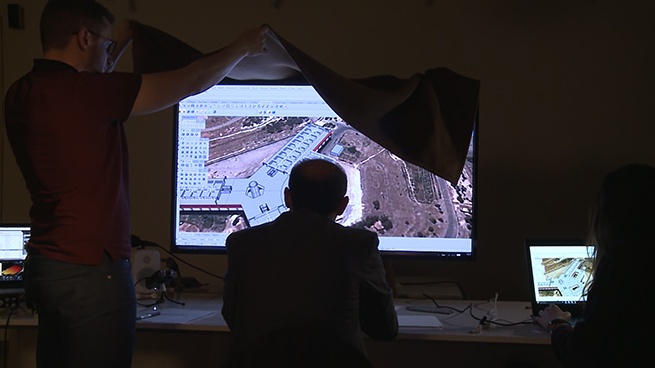Short Course in Forensic Architecture: The Architecture of Memory
28 Apr 2018
This event is sold out, but you can add your name to a waiting list by calling the ICA Box Office on 020 7930 3647. You may also try the returns queue at the ICA Box Office on the day of the event, as we release uncollected guest tickets just after start of each event whenever possible. By becoming an ICA Member, you're frequently able to book popular events first
As part of the exhibition Counter Investigations, Forensic Architecture leads five seminars organized around key concepts that underpin the agency's work, adding up to a short course in forensic architecture. These seminars take place in the ICA gallery spaces, within and around the investigations on display. Whereas these investigations were produced for presentation in juridical and political forums, the seminars gather an alternative forum in which the same evidence is interrogated theoretically and historically
Special multibuy offer
All five Forensic Architecture Short courses for £20/£18 concessions/£12 ICA Members
All are welcome to join these seminars, but we encourage people to attend all or a number of sessions where possible. Space is limited, so please register early
This seminar on the 'architecture of memory' seeks to challenge assumptions around the separations between memory-based testimony and scientifically established evidence. The testimonies of victims of atrocities have been the foundation of human rights practice since the mid 1960s, forming the sensibilities of our contemporary era. Such memory-based practices were seen as alternatives to more scientific or technological routes to information about events – processes previously preserved as the domain of the state, often itself the perperator of human rights violations. This seminar looks instead at ways in which witness testimony and evidence can become combined and entangled, considering methods from immersive reconstruction to architectural simulation, in which memory is enhanced and recomposed. A contemporary understanding of cognitive processes emphasises the situational, prosthetic and relational function of memory. What are the legal challenges involved in technologically enhanced memory? What would a new, digital 'era of the witness' look like?
Members of Forensic Architecture introduce the concept of the architecture of memory, in relation to investigations including Torture in Saydnaya Prison and Drone Strike in Mir Ali.
Invited participants—including psychologist Fiona Gabbert, literary and human rights theorist Thomas Keenan and architectural theorist Ines Weizman—will respond to and offer insights on the investigations and the concepts raised.
Following the seminar members of Forensic Architecture lead a practice-based workshop on 'situated testimony' using architectural and aural simulations, and 'archiving' human rights violations.
Image caption: A former detainee at Saydnaya Prison works with Forensic Architecture researchers to recreate elements of the prison in April 2016. Forensic Architecture, 2016
The Short Course in Forensic Architecture is organised in partnership with the MA Studio in Forensic Architecture, Centre for Research Architecture, Goldsmiths, University of London, led by Susan Schuppli and Lorenzo Pezzani. The practice-based workshops are organised by Christina Varvia




